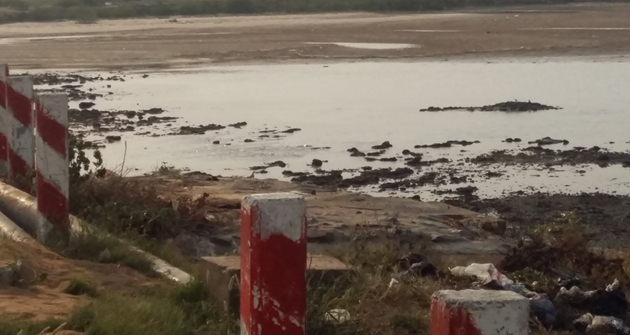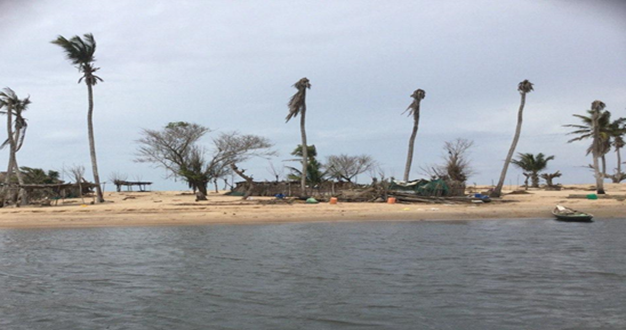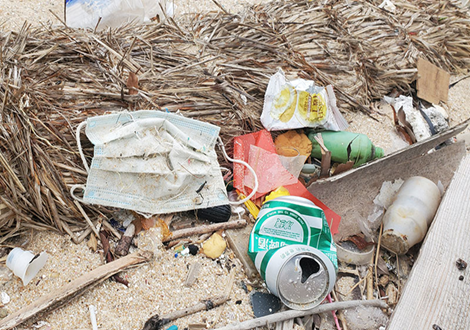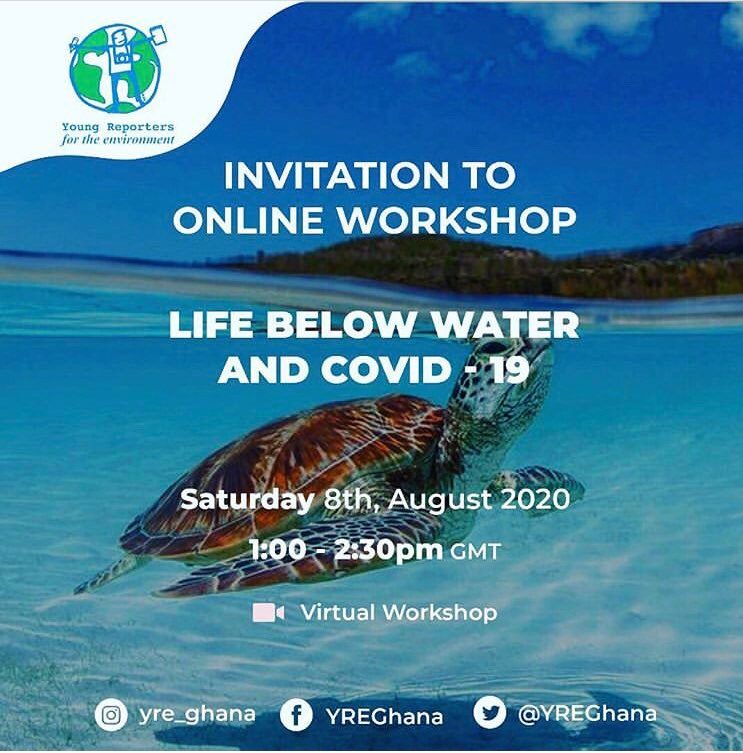Young Reporters for the Environment – Ghana, promotes youth involvement at the largest platform in advocating and achieving targets of selected sustainable development goals, through building capacity, Advocacy and policy.
COVID–19 has irrefutably had drastic impacts on various aspects of human activities, as well as the economy and ecosystems. In quite a short period, it has brought dramatic reduction in industrial activities, human movement and tourism, putting people and livelihoods at risk. With these effects in mind, YRE brought together delegates from private sector, government, and academia through a virtual workshop to discuss ways the pandemic has affected and will affect life below water and suggested actions and solutions to reduce the impacts of the pandemic on the selected SDGs.
VIRTUAL WORKSHOP
In his opening presentation, Prof Samuel T. Sackey, a professor of Biochemistry at the University of Ghana (UG) emphasized the important roles mangroves play as critical habitats that harbor important species. Mangroves represent different categories of large trees and shrubs, which grow in saline coastal environment in the tropics and sub-tropics, he said. In Ghana, communities benefit from Mangroves through small-scale fishing- breeding ground for fisheries, extraction of fuel wood, Timber harvesting and subsistence fishing. Now more than ever mangroves are threatened because of their association with human dominated environments are liable to improper plastic waste disposal and over exploitation during lockdown periods in the COVID-19 era.

© Sammy T. Sackey
He mentioned that these actions would add up to existing effects and escalate degradation of breeding grounds of sea turtles and migratory birds. Prof Sackey ended his presentation by stating that a collaborative partnership between Civil Society Organizations (CSOs) and the governments of Ghana post COVID-19 should inculcate restoration of degraded habitats and providing enabling conditions for natural regeneration of mangroves.
While the sources of threats to the life below water at various locations differed, there were similarities, which the workshop sought to emphasize. The workshop addressed how COVID-19 has affected species that inhabit these areas and how the protection of Marine ecosystems is critical to achieving both climate change and sustainable development goals, and to provide a platform for multi-stakeholder dialogue and partnership.
MARINE ECOSYSTEM
A Research Assistant, Emmanuel K. Brempong from the University of Ghana’s Department of Marine Sciences, highlighted the Current Status of the Marine Ecosystem in Ghana, threats, interventions and next steps. Ghana has about 90 lagoons, 10 estuaries and a coastline estimated at 550km with a 218,100-km2 Exclusive Ecological Zone.
Unsustainable harvesting of living resources, habitat encroachment and deterioration of water quality were some of the most prominent threats. Speaking of his organization’s involvement in the realization of SDG 14, Mr Brempong said: “The complexity in the problem of Marine Ecosystem degradation have been recognized and they are working closely with local people, CSOs, and government to reduce overdependence, restore degraded habitats and educate to prevent further destructions of Marine Ecosystems. He ended by stressing the need for collaboration between research institutions and policy makers to implement strict measures to protect the marine environment.

© Emmanuel Brempong
“Even though most of the effects of COVID -19 are negative, ecologically, we see them to be positive” Francis B. Asamoah, YRE’s Social Media Coordinator uttered these words when speaking on the effects of the pandemic on Marine Ecosystems. Animals are now free, and taking up their natural places. All over the globe, there have been great news of species return, discoveries and regeneration of degraded areas. Fishing has drastically reduced allowing for reproduction and growth.
ACHIEVING SDG 14
On achieving targets of SDG 14, Nii-Noi Omaboe, YRE – Ghana’s Deputy Coordinator mentioned that the pandemic can have both negative and positive impacts; There are now cleaner beaches, fishes now have spaces for breeding, turtles are returning to their natural breeding sites. But the inability to undertake
Reduced social action and commitment in fighting marine pollution increased domestic waste, both organic and inorganic which end up in some oceans.
Polystyrene, polycarbonate or polyethylene used in making of surgical masks have long afterlife after they have been discarded which may end up in the oceans causing great harm to marine life.
He ended by underlining awareness creation, education & innovation as ways to promote knowledge on the SDG 14.
CAMPAIGN ON WASTE PICKERS’ SAFETY
For her part, the National Coordinator for YRE-Ghana, Ellen Lindsey Awuku made remarks backed by images that showed the improper disposal of Personal Protective Equipment (PPEs). In Ghana masks and gloves are now littering streets and starting to wash up on beaches around the world.
.
©online
Strewn across parking lots, in rivers and washing up on beaches, disposable face masks, gloves and other personal protection equipment are turning up everywhere except where they should be – in the landfill, she said.
She stressed the need for inclusiveness in solving the waste disposal issue: “Marine debris are created by people, and no one person can solve this problem alone. By encouraging others to properly dispose of their waste; we can prevent our trash from becoming marine debris”.
In light of this, YRE together with other CSOs, coordinated by UNDP have launched a campaign to support waste pickers’ safety, and educate the public on treatment of PPE.
Written by Francis Boafo Asamoah
Social Media Manager
YRE-Ghana
Proofread by JKB
